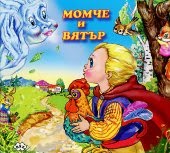Carnaval is a festive season which occurs immediately before Lent; the main events are usually during January and February. Carnival typically involves a public celebration or parade combining some elements of a circus, masque and public street party. People often dress up or masquerade during the celebrations, which mark an overturning of daily life.
Alemannic Fastnacht
The « Swabian-Alemannic" carnival begins on January 6 (Epiphany/Three Kings Day). This celebration is known as Fastnacht. Variants are Fasnet, Fasnacht or Fasent. Fastnacht is held in Baden-Württemberger, parts of Bavaria, and Alsace. Switzerland and Vorarlberg, in Austria, also hold this celebration. The festival starts on the Thursday before Ash Wednesday, known in these regions as Schmutziger Donnerstag or Fettdonnerstag. In standard German, schmutzig means "dirty", but actually the name is from the local dialect where schmutzig means "fat." Elsewhere the day is called "Women's Carnival" (Weiberfastnacht), being the day when tradition says that women take control. In particular regions of Tyrol, Salzburg and Bavaria traditional processions of the Perchten welcome the springtime. The Schönperchten ("beautiful Perchts") represent the birth of new life in the awakening nature, the Schiachperchten ("ugly Perchts") represent the dark spirits of wintertime. Farmers yearn for warmer weather and the Perchtenlauf (Run of Perchts; typical scenery) is a magical expression of that desire. The nights between winter and spring, when evil ghosts are supposed to go around, are also called Rauhnächte ("rough nights").
Heidi Quéré














No comments:
Post a Comment